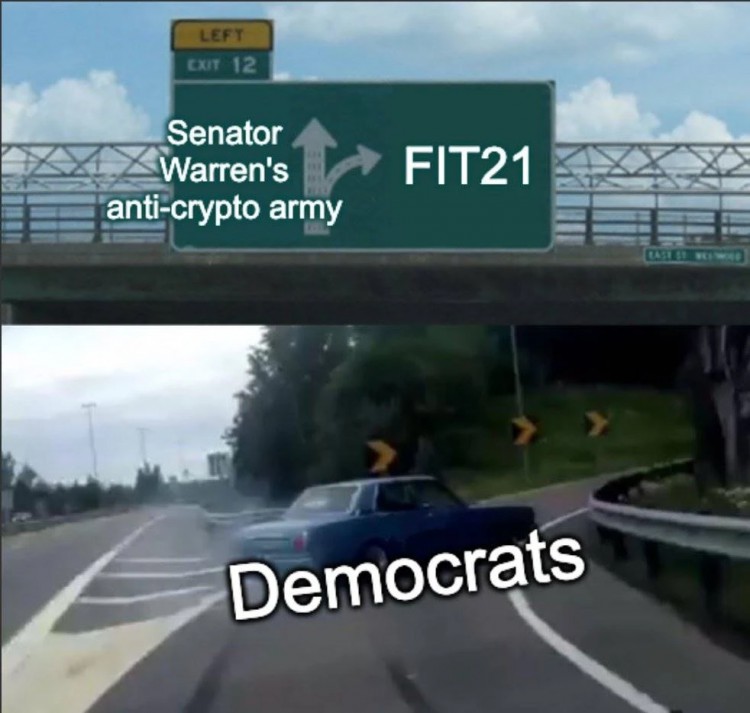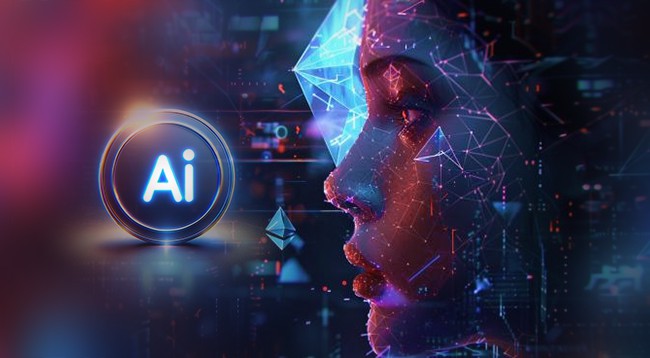摘要:《确保肖像声音和图像安全(ELVIS) 法案》旨在保护个人的声音、图像和肖像免遭人工智能 (AI) 不负责任和不道德的使用,于 2 月 27 日在田纳西州参议院和众议院商务委员会获得两党一致通过。支持。 田纳西州拥有活跃的音乐产业...
《确保肖像声音和图像安全(ELVIS) 法案》旨在保护个人的声音、图像和肖像免遭人工智能 (AI) 不负责任和不道德的使用,于 2 月 27 日在田纳西州参议院和众议院商务委员会获得两党一致通过。支持。
田纳西州拥有活跃的音乐产业社区,其首府以“美国音乐之城”而闻名。因此,田纳西州州长比尔·李一月份提出该法案后,迅速推进并获得热烈支持也就不足为奇了。
在听证会上,该案听取了音乐界知名人士的证词,如当代基督教艺术家兼作曲家娜塔莉·格兰特和马特·马赫,以及热门歌曲作者和伊凡塞斯联合创始人大卫·霍奇斯。
马赫在证词中表示,他的声音和形象使他与众不同,并定义了他作为一个个体。
“当其他人未经同意使用艺术家的声音和肖像时,这是对我们是谁和我们所做的事情的核心的个人和根本侵犯。”
出席听证会的还有唱片学院的首席倡导和公共政策官托德·杜普勒,唱片学院是每年格莱美音乐奖的幕后机构。
Cointelegraph 有机会与 Dupler 讨论了学院在人类艺术运动方面的实地工作以及在各州首府根据人工智能倡导和捍卫艺术家权利的工作。
深度伪造(或不深度伪造)的权利
自从出现在主流领域以来,人工智能已经成为音乐行业的一个主要争论点。虽然一些艺术家热衷于采用和倡导这项技术,例如电子音乐艺术家 Grimes,但其他艺术家却因侵犯知识产权和深度造假的不断出现 而陷入疯狂。
杜普勒表示,在困扰创意界的所有人工智能问题中,“最容易”掌握的是人工智能生成的赝品的想法。
“A lot of the AI issues are more complicated -more nuance or legal ambiguity- but this one seems pretty clear that you shouldn't be able to take somebody's image, voice or likeness and use it without their permission.”
Many states in the United States have what is known as a “right of publicity” law, which protects artists from having their image or their name used to sell something or to promote something without their permission.
Although most of these were written and implemented before the age of AI and don't cover the digital space or digital replicas.
Dupler said the goal is to update this for the digital age, with Tennessee being a “great place to start” due to its strong right of publicity law, which ws used by the Elvis Presley estate to protect his legacy and name.
Related: AI resurrects Elvis Presley for comeback live performances
“We did name the bill after Elvis, which really would be the first law of its kind that protects image, likeness and voice for artists and specifically in the context of digital replicas and AI.”
The Recording Academy executive said they have worked with the governor's office and stakeholders in the music community to craft this legislation and get the governor on board. He said they’re “optimistic” that the bill will pass the full legislature and be signed into law.
“We take nothing for granted,” he said, “which is why we get out and do the work that we did. Now that it's cleared these committees, the next step would be for the bill to go to the floor of the Tennessee House and the Tennessee Senate for a full vote.”
AI creating bipartisan action
Despite the controversy surrounding the topic, it has proved to be an issue uniting the music industry.
Dupler said due to its diversity, it is difficult for the music communityt to get everyone aligned on the same page. “What we have found is that when we do find that alignment and common ground, we're able to get great things done for the music community,” he said.
He pointed to two recent examples: the Music Modernization Act passed in 2018, which modernized music licensing laws for the first time in 20-plus years, and also the Save our Stages Act in 2020 which came as a result of the COVID-19 pandemic, resulting in the largest infusion of aid to the arts in U.S. history.
“Two things back to back and different spaces, but places where the music community was able to come together to accomplish something,” he said. “We're hopeful in this context with AI particularly protecting likeness and voice and image, that we can do the same thing.”
Not only is the music industry coming together, but regulators across the political aisle. Dupler said it's “rare” when there is such bipartisan agreement around an issue.
“总是很难预测国会或立法会发生什么。我不知道立法需要多长时间才能完成整个过程,但我认为他们知道这是他们需要解决的问题。”
政客和政治人物本身也未能幸免于深度造假的愤怒。一月份,深度造假诈骗者制作了美国总统乔·拜登声音的复制品,他们将其用于诈骗机器人电话,以劝阻选民参加地方选举。
正如埃尔维斯曾经唱过的那样——机不可失,时不再来
如果此类立法没有得到认真对待,或者更糟糕的是没有以某种方式实施,其影响可能不仅仅是影响单个艺术家。《ELVIS 法案》不仅保护创意人员和公众人物,还保护遵守该法律的每个公民。
“当你看到技术能够盗取你的形象和声音并做你没有做过的事情时,你就会有一种真正的个人侵犯感。”
杜普勒提到了艺术家莱尼·威尔逊(Lainey Wilson),她在国会议员面前作证称,她的肖像被用来销售减肥软糖,但她并未参与其中。
“她认真对待自己拥有年轻的粉丝,女孩们尊敬她,非常认真地对待她所说的话,并坚持下去,”他说。“如果她被用来推销她不认可的东西,那真的可能会误导和扭曲这些粉丝如何看待她以及他们可能会做什么。”
尽管如此,他表示录音学院认为“人工智能在使音乐创作民主化、让更多人接触到音乐方面有着很大的前景。也许会创造出我们还没有想到的新效率或新创意,以及人们创作音乐的方式。”
“然而,了解技术发展的速度有多快,我们知道我们必须非常快地设置护栏,然后才能超越我们可以对其进行保护的程度。”
录音学院首席执行官小哈维·梅森 (Harvey Mason Jr.)在去年接受 Cointelegraph 采访时也表达了类似的观点,他表示,虽然需要正确的监管,但人工智能有潜力成为“创意放大器”。
杂志:BitCulture:Solana 上的美术、AI 音乐、播客 + 书评




